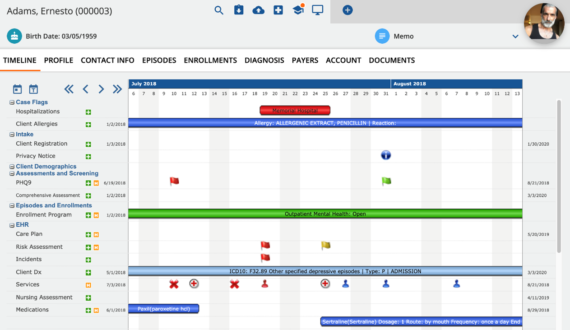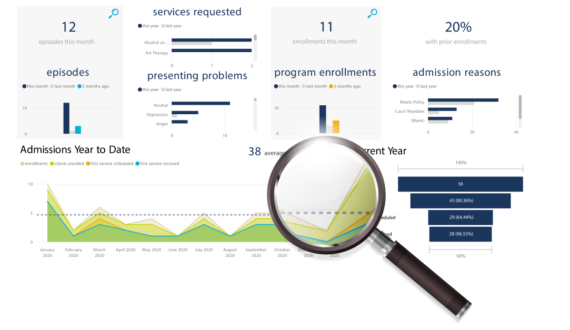Clinical Treatment Post-Pandemic

The return to normal is a moment in time that we all have long looked forward to with yearning and much anticipation. After more than a year, and even with mask-wearing reduced and social distancing rules lifted, we still cannot definitively say that we are back to the normal we once knew.
The post-pandemic period is seemingly far less stressful. The vaccine has brought us some peace of mind, and time has allowed us to adapt to changing circumstances in practically every area of our lives. For healthcare and education professionals specifically, clinical services during the post-pandemic period will remain different. As schools and teachers transition out of virtual education for students, healthcare providers continue to utilize this technology post-pandemic. Virtual healthcare allowed millions of Americans to continue to see their mental health providers, doctors, and other medical providers during the mass shutdown, and it seems that it is here to stay. The convenience and efficiency are far too significant to leave it behind as a pandemic-only tool.
When it comes to virtual education, teachers and other academic staff received a sudden crash course in the use of virtual learning last year when schools were closed for months. Now, educators are knowledgeable and well-equipped to use virtual education if it is ever needed again.
Healthcare providers and academic professionals have undoubtedly stepped up to the plate and adapted to the pandemic, but what about the tools and care needed for post-pandemic services?
Changes to the Way Mental Health Providers Work After the Pandemic
Trauma-informed care (TIC) is a critical treatment approach that mental health professionals must adopt right away as we transition into this post-pandemic era. We need a (re)introduction to this decades-old intervention approach because the social, emotional, financial, and health-related consequences of the pandemic remain. Health and education providers will be seeing more and more evidence of these consequences and the adverse impact on their patients, clients, and students.
Many mental health and social services providers have received TIC training, but not all professionals have field training and experience in delivering these interventions. Among medical providers and teachers, unless they work specifically with trauma populations or in a first-responder capacity, TIC is an even more remote concept.
How Mental Health Professionals Can Incorporate Needed Services for those Suffering from Pandemic-Related Trauma
Health and education providers responded to a pandemic, the likes of which the world had only seen in movies, and educated themselves and applied what they learned to meet the needs of the patients, clients, and students. This challenge was admirably accomplished by many helping professionals nationwide throughout 2020 and into 2021. We must apply this same effort, devotion, and resilience to delivering TIC during the post-pandemic period.
TIC in academic settings involves identifying and responding to students emotionally impacted by trauma resulting from the pandemic. Mental health professionals must know what to look for when identifying students in need of intervention. In addition, staff and teachers must be prepared to regularly communicate with students to provide them with coping strategies to manage post-pandemic stressors. It is also critical to keep in mind that just as students (and parents) had to adapt to virtual/distance learning quickly, they must also adapt to the return to live schooling with restrictions and new rules – the new normal, that is. Many students will return having suffered a severe loss, struggled through financial difficulties and family conflicts, or witnessed illness, death, or violence during the pandemic. Academic staff and teachers must strive to create and maintain trauma-informed schools.
Among healthcare settings, TIC involves a shifting of focus among mental health professionals—from identifying a client or patient’s presenting problem to ensuring that these individuals are appropriately questioned and assessed at the onset of treatment for the presence of trauma. Healthcare providers must function by assuming that traumatic events may have impacted all patients during the pandemic and such trauma has impacted the person’s current physical and emotional health. To provide high-quality, effective health services, healthcare providers must learn the warning signs that a patient/client suffers from trauma and then use this education to change the way they deliver services. Healthcare providers and administrative staff, and other non-clinical personnel must use extreme caution to ensure they do not play a role in unknowingly re-traumatizing patients and clients. This is why knowledge and education are critical.
The current and continuing post-pandemic period requires helping professionals to apply their complete dedication, flexibility, and willingness to educate themselves and tailor their practices and approaches to the populations they serve. Together, we can collaborate, learn, and contribute to the urgently needed healing and recovery among individuals, families, and communities the pandemic left for us.



